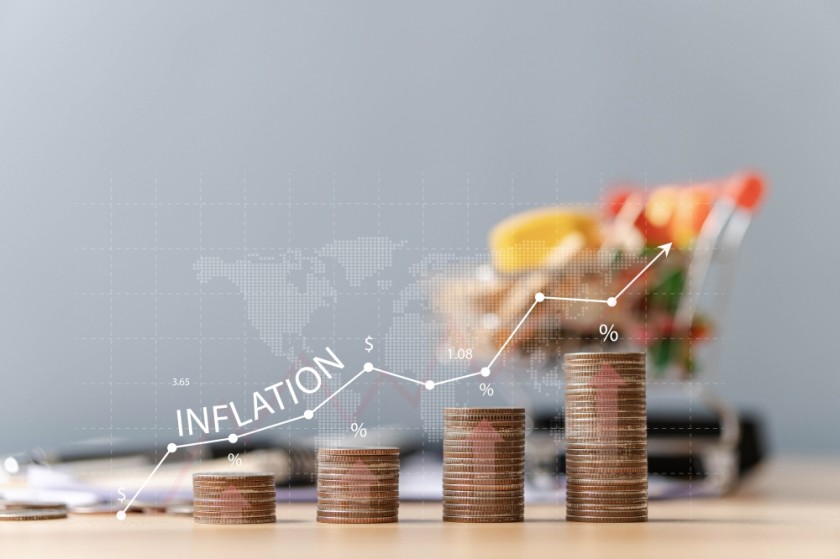
JAMES K GALBRAITH
, NOV 19, 2023
In his November 7, 2023, New York Times newsletter, economist Paul Krugman raises a pertinent, albeit belated, question: Why did so many economists misjudge the inflation outlook? Despite the near-consensus among mainstream economists that inflation would persist and even accelerate, justifying substantial interest-rate hikes by the US Federal Reserve, the quasi-inflation of 2021-22 turned out to be transitory.
Krugman tactfully questions the illogic of certain inflation pessimists who, long after the absorption of the 2021 fiscal stimulus packages, provided new, unrelated justifications for their belief that inflation would stubbornly remain high. With little mainstream dissent, their doomsaying dominated the discourse into 2023.
Though Krugman refrains from naming Lawrence H. Summers, who justified inflation pessimism with concerns about supposedly excessive savings, the Fed's debt purchases, and forecasts of essentially zero interest rates, Krugman dismisses these worries as nonsense. As Krugman rightly points out, savings cannot cause inflation, and a technical forecast holds no causal power.
Adopting the persona of a naïf, Krugman suggests that economists might have been searching for reasons to be pessimistic, citing two possibilities: fear that well-supported American workers might be harder to manage and the belief that high interest rates support the dollar internationally.

Inflation,And,Tax,Concept,Rising,Graph,Of,Inflation,Rats,African
Krugman acknowledges that various Fed officials have openly stated their commitment to maintaining a strong dollar, with an obsession with wages permeating Fed Chair Jerome Powell's speeches. Krugman hints at a third possibility – that some mainstream economists might advocate for high interest rates to curry favor with bankers, who benefit from larger profit margins when rates are high.
As Krugman concludes, a thorough examination of how so many economists erred in their predictions, coupled with introspection about their motivations, is warranted. However, he expresses doubt about the likelihood of such an introspective exercise within the economics profession.
Krugman notes that the economists he mentions, including himself, are very much part of the economics profession's mainstream. However, he subtly suggests a larger issue: the repeated failures of mainstream economists in predicting significant economic events, such as the 2007-09 financial crisis and the ill-advised turn to austerity in 2010.
The core of the problem, as Krugman highlights, may lie in the fact that many leading mainstream economists were trained in the 1970s, and their worldview, both in terms of facts and theory, remains fixed in that era. The influences of general equilibrium theory, inflation-unemployment trade-offs, and monetarism continue to shape their perspectives.
Notably, Krugman’s reflection on disinflation makes no mention of economists who accurately predicted the disinflation, such as Isabella M. Weber of the University of Massachusetts Amherst, and L. Randall Wray and Yeva Nersisyan of the Levy Institute. Despite their correct predictions, economists with alternative ideas often go unnamed and unrecognized, possibly due to resistance from the old guard seeking to preserve their academic, political, and media monopolies since the 1970s.
In offering a polite critique of his colleagues, Krugman diplomatically raises questions about the direction of mainstream economics. James K. Galbraith, Professor of Government and Chair in Government/Business Relations at the University of Texas at Austin, concludes by suggesting that mainstream economists should re-examine their core beliefs or perhaps consider the need for a new mainstream altogether.
James K. Galbraith, Professor of Government and Chair in Government/Business Relations at the University of Texas at Austin, is a former staff economist for the House Banking Committee and a former executive director of the Joint Economic Committee of Congress. From 1993-97, he served as chief technical adviser for macroeconomic reform to China’s State Planning Commission. He is the author of Inequality: What Everyone Needs to Know (Oxford University Press, 2016) and Welcome to the Poisoned Chalice: The Destruction of Greece and the Future of Europe (Yale University Press, 2016).
Project Syndicate 2023

No comments:
Post a Comment